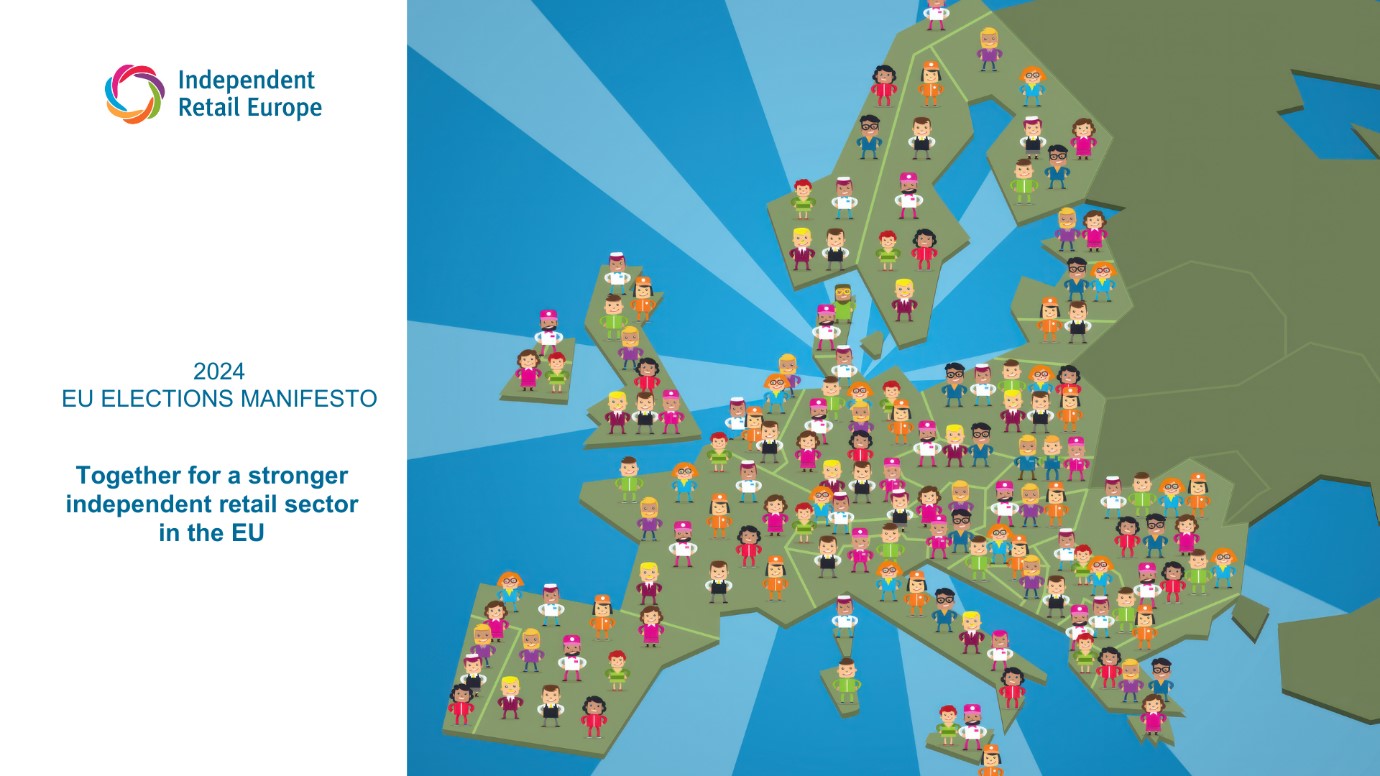Our members by numbers (2022)
RECOMMENDATIONS FOR THE 2024-2029 LEGISLATURE
"2024 EU elections manifesto - Together for a stronger independent retail sector in the EU"
1. Boost the competitiveness of independent retail
The 2024-2029 legislative mandate should prioritise the implementation of an ambitious pro-SME agenda. This would boost economic growth, job creation, and innovation. As a top priority, policymakers should simplify regulatory frameworks for SMEs and provide a level playing field for groups of independent retailers. A competitive SME landscape not only strengthens the economy but also fosters a diverse and resilient retail market.
Our key recommendations:
- Ensure a level playing field for groups of independent retailers
- Design ‘SME-fit’ policies through a more ambitious SME policy
- Give more weight to the SME test
- Revise the EU SME definition in light of inflation
- No new reporting requirements and a phased implementation for SMEs
- Promote a more beneficial payment landscape for retailers and consumers
- Preserve contractual freedom in payment terms to protect independent retailers
- Make payment systems more innovative and competitive
2. Ensure a smooth twin transition for independent retailers
Retailers play an important role in driving sustainability by adhering to high green standards and actively investing in sustainability. They have voluntarily integrated environmental goals into their business strategies and also need to cope with extensive new legislation, whilst keeping prices affordable to consumers. Concerning the digital transition, independent retailers made giant steps in the last years, integrating the emerging digital trends into their operations. However, the legislative framework does not always support their efforts.
Policymakers should recognise the risks of regulatory overkill on sustainability issues and adopts policies that support a level playing field and pro-consumer innovations.
Our key recommendations:
Sustainability:
- Focus on the implementation of new legislation
- SFSF: Do not regulate retail shops’ operations and protect the Single Market
- Ensure that the Green Claims Directive does not hinder business investments in sustainability
Digital:
- Fair digital regulations for groups of independent retailers
- Support beneficial online personalisation practices
- Ensure a level playing field between EU traders and third-country traders
3. Strengthen the EU Single Market
A well-functioning Single Market is the bedrock of the European economy, enabling businesses to scale, and encouraging innovation and competition. The seamless movement of goods, services, capital, and skilled labour represents the foundation of resilient supply chains, and must be defended against fragmentation caused by large businesses’ practices and obstacles created by Member States.
Our key recommendations:
- A more assertive defence of the Single Market through a renewed infringements policy
- Ban Territorial Supply Constraints by large businesses
- Unfair Trading Practices (UTPs) in the food chain: support competitiveness by preserving the single market and tackling UTPs from large sellers
4. Strengthen the Better Regulation agenda
An effective and efficient EU regulatory framework is clear, feasible, and proportionate to the role and activities of each sector in the different supply chains. Such a Framework can only be achieved if the EU institutions apply Better Regulation practices through more and better involvement of stakeholders in policy conception and the legislative process; at Commission level, for instance, more use should be made of advisory committees. This way, the EU can foster an environment where independent retailers can thrive and fulfil their essential socio-economic role in local communities.
Our key recommendations:
- Foster competitiveness through a more thorough consultation process
- Better impact assessments in EU institutions
- Ensure better representation of the retail sector in the European Commission
- Increase SME involvement in EU legislation by involving all EU trade associations that represent SMEs
5. Messages
Introduction to Independent Retail Europe's Manifesto - President Thomas Nonn
Else Groen, Director General of Independent Retail Europe: Statement on the EU 2024-2029 mandate

